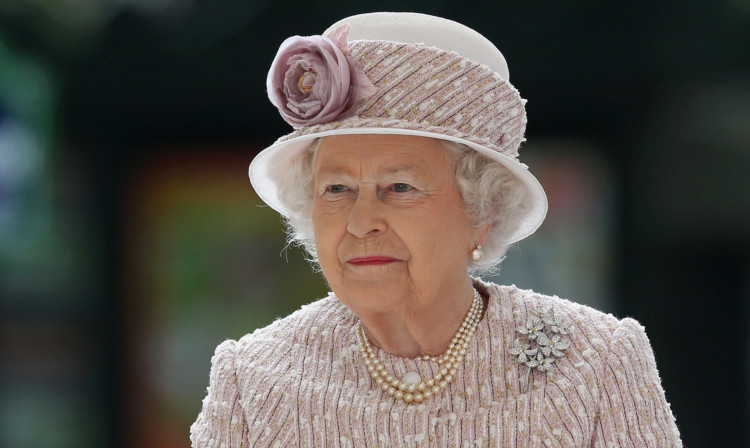
If it’s all gong and no dinner, what use is it?
It was the week that President Obama waded into the independence referendum.
We commemorated the 70th anniversary of D-Day. And an unknown Norwegian became Celtic manager.
Big news events galore. But the image that stuck in my mind was that wee lad who fainted during the Queen’s Speech.
It happened nine minutes into the speech when witnesses heard a loud thud to the right of the throne as 12-year-old pageboy Charles Hope fell to the ground.
Camilla and Prince Charles leaned forward instinctively though they didn’t actually rise to help. The Queen flicked her eyes towards the collapsed lad lying a yard from her feet, but after a brief pause resumed the speech and let a waiting world know that her Government plans a “comprehensive nuclear agreement with Iran”.
One MP said: ‘As ever, Her Majesty was the consummate professional.’ But actually, wouldn’t it have been great just for once if a human moment had triumphed over all the empty pomp and ceremony?
Wouldn’t it have raised cheers around the world if a celebrated figure like the Queen had stopped the whole rigmarole to get help for a wee boy? And mightn’t it just have transformed her own tight-lipped image to boot?
The Queen is a queen sure. But Elizabeth is also a mum, grandma and great grandma. What would have been more natural than slipping out of her institutional role into her caring one? And yet the moment passed.
Can you imagine any of the world’s great communicators like Bill Clinton, Obama or the late Nelson Mandela paying more attention to protocol than human need?
Now to be fair I know how hard it is to deviate from the script in highly choreographed events. The pressure to stick to pre-ordained plans can freeze the most confident performer. And at the age of 88, the Queen herself was doubtless struggling to get through the whole ordeal.
In a way this typifies where our public life is going wrong. As my mother would say, it’s too often “all gong and no dinner”. All show and little substance with no spontaneity, humanity, humour or personality.
Might this not be an opportune moment to reconsider the whole archaic State Opening of Parliament, mace, black stockings, wigs and all?
Take young Charlie the fainting page. He was dressed in a heavy red and gold brocade coat with a lace jabot, satin knickerbockers and white stockings and left standing for an hour in a boiling House of Lords.
Not exactly the usual way a youngster spends a Wednesday morning. But then Charles Hope is no ordinary boy. He’s Viscount Aithrie and the future Earl of Hopetoun and Marquess of Linlithgow.
It’s only the aristocracy who can get that close to the Queen. So maybe there was more than a ton of robes weighing on young Charles.
Maybe there was also the weight of expectations and the burden of repressing his own boyish urges to stand in a hot House of Lords, wearing an antique outfit, listening to a boring adult speech so that none of his family would be disappointed in him.
Happily the lad recovered and no-one thinks any the worse of him. A procession member observed: “The important thing is that he was doing his duty for the Queen.” I’d humbly suggest he was doing what he was told. There is a difference.
All of this harks back to a time when status, titles and roles mattered far more than individuals in public life. Times have changed. So let’s put the personality and humanity back into our state occasions. Maybe young Mr Hope has already led the way.

Enjoy the convenience of having The Sunday Post delivered as a digital ePaper straight to your smartphone, tablet or computer.
Subscribe for only £5.49 a month and enjoy all the benefits of the printed paper as a digital replica.
Subscribe